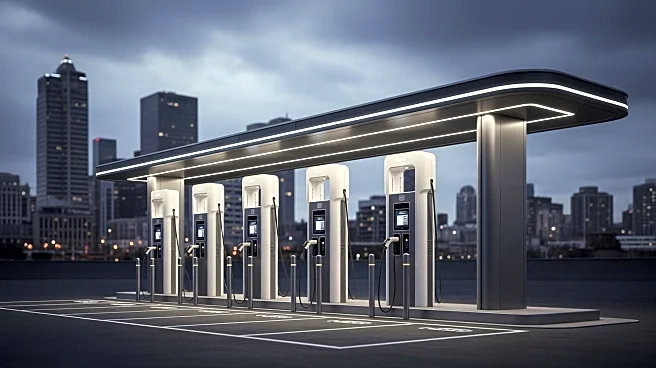What's Happening?
Rivian Automotive is planning to lay off more than 600 employees, which represents about 4% of its workforce. This decision comes as the electric vehicle (EV) manufacturer faces a challenging market environment.
The company is dealing with the impact of changing regulations under the Trump administration, including the removal of a $7,500 federal incentive for purchasing EVs. Additionally, Rivian is experiencing slower-than-expected demand and a lack of new product launches until the following year. The company reported a $1.1 billion loss in the second quarter and has adjusted its 2025 delivery forecast to between 41,500 and 43,500 vehicles, down from a previous estimate of up to 46,000 units.
Why It's Important?
The layoffs at Rivian highlight the broader challenges facing the EV industry in the U.S., particularly in light of regulatory changes that have removed key incentives for consumers. The elimination of federal incentives could slow the adoption of electric vehicles, impacting not only manufacturers like Rivian but also the broader push towards sustainable transportation. The financial losses and reduced delivery forecasts suggest that Rivian, despite its growth in sales, is struggling to maintain its financial footing in a competitive and evolving market. This situation could have implications for investors and stakeholders in the EV sector, as well as for the future of green technology initiatives in the U.S.
What's Next?
Rivian is expected to provide more details to its employees regarding the layoffs. The company will likely focus on stabilizing its financial situation and addressing the challenges posed by the current market conditions. Stakeholders will be watching closely to see how Rivian navigates these challenges and whether it can successfully launch new products next year to boost demand. The broader EV industry may also respond by advocating for policy changes or new incentives to support growth and innovation in the sector.









